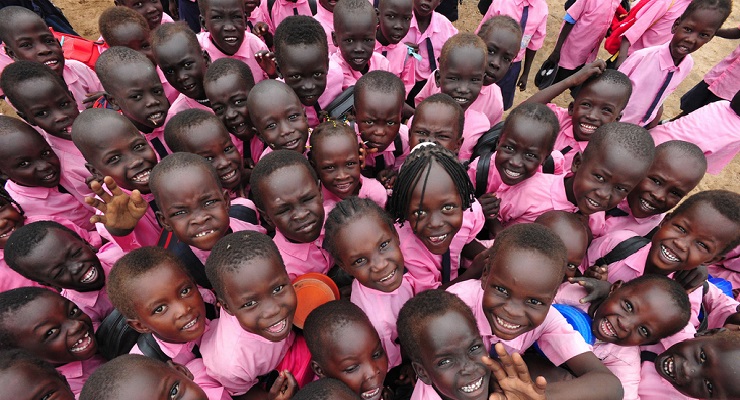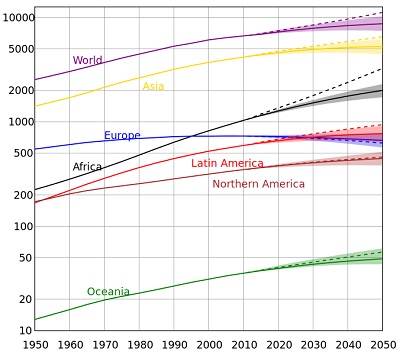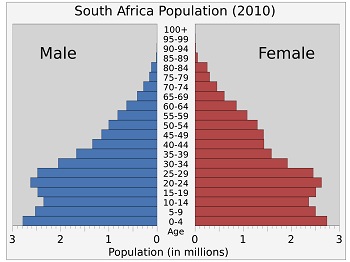
The widening age gap between African leaders and their populations is a cause for concern. For instance, in 2016, the average median age of the African population was 20, while the average age for Heads of State was 66. Thanks to the UK elections held on 8 June 2017, there is a renewed the debate on voting patterns and political participation of youths in elections in Africa. The 72 percent youth turnout which was thrown around just an hour after close of polls, although still to be verified, was interesting for Africa’s in that it showed young people can vote and decide their destiny.

This is all more important because Africa’s population is young and it continues to get younger as populations around the world are getting older.
According to the African Economic Outlook report, Africa has over 40 percent of its working age population between the ages of 15 and 24, making it the youngest continent in the world. The report further says that there are almost 200 million youths in Africa and that number will double by 2045.
Younger populations are beneficial in that there is large working age which means more support for citizens and key development. This means youth can lift Africa from its poverty-ridden, economically poor present and into a better future.
However, development can only happen when youths became masters of their own destiny by for instance through political participation that is voting and taking up political office so that they can drive the agenda they want. Youth remain under-represented in the voters roll throughout Africa. For instance Statics South Africa noted that before the 2016 local government elections in South Africa, out of the 25 million voters on the voters roll, youth were less than 10 million. Surprisingly, those below the age of 35 years constitute about 66 percent of the total population of 54 million (Matshediso 2016).
In Zimbabwe, youths makes up about 75 percent of the total population are youths.
In one of my recent articles titled: “Addressing Zimbabwe’s Voter Apathy Challenge”, l highlighted why youths will be important in Zimbabwe’s 2018 elections. The ruling party led by President Robert Mugabe is currently holding at least one rally for the youths in all the country’s 10 provinces. Opposition Movement for Democratic Change (MDC-T) leader Morgan Tsvangirai is also gearing up youths to participate in 2018 general elections through rallies and messages on social media. At his latest rally,in Gweru (270km west of Harare) Tsvangirai employed youths to register and translate the registration into actual votes.
In Kenya there is doubt that of the over 14 000 people in the August 8 2017 general elections there is no doubt few of them are youths. However, on a positive note, an audit of the voters roll by accounting firm KPMG revealed that there was a 26.95 percent increase in registered voters from 2013 with a marginal increase of registered youths. Kenya is heading for a general election on 8 August 2017

In South Africa, a study conducted prior to the 2016 local government elections reveals that youths would rather protest than go and vote. This kind of thinking will not take South Africa forward but backward.
In Tunisia and Egypt, youth played a leading role during the Arab Spring but, however remain away from elections (MINDS 2016). An eight African nation research by the Mandela Institute for Development Studies (MINDS) in 2016 revealed that, “youth were at the forefront of political change in many countries, often because of their frustration with high levels of unemployment, marginalization, and feeling under-represented both by governments and leadership”.
Although political engagement among young people is decreasing in Africa, initiatives such as the African Youth Charter aim to address this. In coming years, youths in Africa will become the bulk of voters on average, 46% of citizens are below the legal voting age. In Uganda, 5 seats in parliament are reserved for youth representatives, while in Kenya; the Senate has elected 2 youth representatives.
The Rwanda constitution reserves 2 seats in the lower house for citizens under 35, chosen by an electoral college. In Morocco, 30 seats in the lower house of parliament are reserved for less than 40 year-olds. In Tunisia, political parties are required to put forward at least one candidate of 35 years or younger. Prior to the 2014 general elections in South Africa, the IXSA campaign was launched to encourage youths to register to vote, participation and engagement. In Zimbabwe the XIG voter campaign and other initiatives prior to the 2013 general elections engaged youths to register to vote without much success. It remains to be seen whether 2018 harmonized elections will change the matrix.
Rwanda, Kenya, Angola and Liberia are set to hold general elections in the next few months. These should hopefully represent a momentum build-up of African youth political participation with youths rising and descending on polling stations for their voice to be heard.
References:
- Africa Economic Outlook, Special theme: Sustainable Cities and Structural Transformation, 2016.
- Matshediso, M. 2016. IEC concerned about youth voter apathy
- Mandela Institute for Development Studies(MINDS). 2016. 2016 Youth participation in elections in Africa: an eight country study.
Leave a Reply